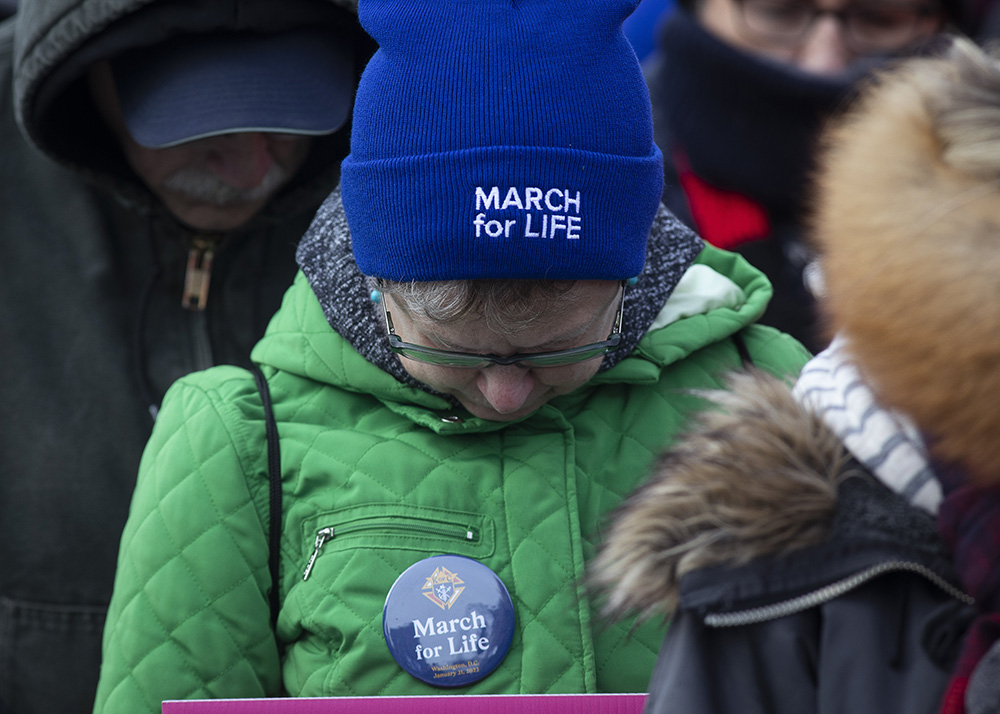
Pro-life advocates pray during the annual March for Life in Washington Jan. 21, 2022. (CNS photo/Tyler Orsburn)
~ by Brian Fraga, National Catholic Reporter
Nearly seven months since the U.S. Supreme Court struck down Roe v. Wade and returned the issue of abortion to the individual state legislatures, tens of thousands of anti-abortion activists will descend on Washington, D.C. for the 50th annual March for Life on January 20.
They will march during an historical juncture for the pro-life movement, which is celebrating the landmark goal of overturning Roe even as the movement has since been of the receiving end of an electoral backlash where abortion rights activists prevailed in several state-level ballot initiatives and pro-choice Democrats fared better than expected in the 2022 midterm elections.
“The pro-life movement has just experienced a major victory in the fall of Roe v. Wade, but our work to build a culture of life is far from complete,” Jeanne Mancini, the President of March for Life, told the National Catholic Reporter (NCR) in a prepared statement that referenced the 1973 landmark abortion ruling that the high court reversed in June 2022 with Dobbs v. Jackson Women’s Health Organization.
Mancini said the march will reflect upon Dobbs “as a critical milestone” while looking forward “to the next steps.”
Meanwhile, Mary Ziegler, of the University of California Davis School of Law noted in an interview with NCR that multiple public opinion polls over several decades show that voters in the United States generally support keeping abortion legal while favoring some restrictions earlier in pregnancy. “Now that Roe is gone, that’s opened the door to bills that would criminalize abortions all together, and a lot of voters don’t like that.”
Signaling a new phase for the movement, activists in 2023 will march to the steps of the U.S. Capitol instead of the Supreme Court. To read the full account, please click here
